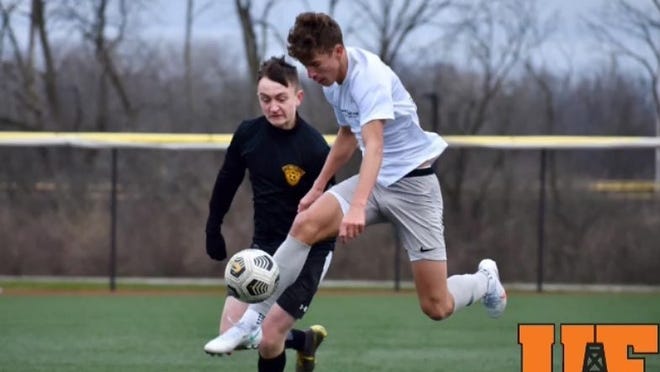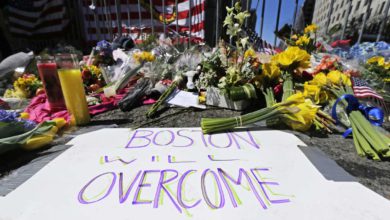
When looking at the disparities between the most and the least vaccinated states, the COVID-19 case rates indicate stark differences.
Over the past week, states that have fully vaccinated more than half of their residents have reported an average case rate of about a third of the one in states that have vaccinated less than half of their residents, according to a CNN analysis of data.
The U.S. averaged 19,455 new COVID-19 cases per day over the last seven days, a 47.5% increase from the previous week, according to data from Johns Hopkins University. And 43 states saw an increase in cases last week from the week before, a sign that the pandemic endures in the United States. More than 99% of deaths are now among people who have not been vaccinated, the Center for Disease Control and Prevention reports.
"If [patients] are sick enough to be admitted to the hospital, they are unvaccinated. That is the absolute common denominator amongst those patients," Dr. Howard Jarvis, an emergency medicine physician in Springfield, Missouri, told CNN on Monday. "I can see the regret on their face. You know, we ask them, because we want to know, are you vaccinated? And it's very clear that a lot of them regret (not being vaccinated)."
Also in the news:
►The Tennessee state government on Monday fired its top vaccination official, becoming the latest of about two dozen states to lose years of institutional knowledge about vaccines in the midst of the coronavirus pandemic.
►Utah Gov. Spencer Cox apologized Monday after his administration discovered a state agency misstated last week that 70% of residents in the state had received one dose. The percentage, once corrected, fell to 67%.
►Federal health officials stuck to their position that Americans who are fully vaccinated against COVID-19 don't need a booster shot after meeting Monday with representatives from vaccine maker Pfizer.
►Japan Prime Minister Yoshihide Suga on Monday ordered a COVID-19 state of emergency for Tokyo. The plan aims to contain a resurgence in coronavirus infections and curb the movement of people during the Olympics, which run from July 23 to Aug 8.
? Today's numbers: The U.S. has had more than 33.8 million confirmed COVID-19 cases and more than 607,300 deaths, according to Johns Hopkins University data. The global totals: more than 187.2 million cases and more than 4 million deaths. Nearly 160 million Americans — 48% of the population — have been fully vaccinated, according to the CDC.
? What we're reading: As many adolescents and young adults prepare to return to the classroom in the fall term amid the spread of the delta variant, the lagging vaccination rates among Generation Z are raising concerns among experts.
Keep refreshing this page for the latest news. Want more? Sign up for USA TODAY's Coronavirus Watch newsletter to receive updates directly to your inbox and join our Facebook group.
California prohibits K-12 students from campus without a mask
New California state rules prohibit K-12 students from attending in-person classes without a mask, according to the new state regulations released on Monday.
The rules go against the CDC’s recommendations that allow vaccinated students to attend classes without masks. California added stricter rules in addition to federal recommendations.
State Supt. of Public Instruction Tony Thurmond told the Los Angeles Times that part of the reason is that those 12 and under are still not eligible to be vaccinated. Masks are a helpful addition when physical distancing may be difficult with full attendance.
“That makes it more tenable that everyone can come back, and everyone can be safe,” Thurmond said. “So I see this as a commonsense measure of promoting safety but giving everyone the ability to get back.”
The California Department of Public Health tweeted Monday that school guidance will be clarified regarding mask enforcement and safety.
FDA warns about possible link between J&J vaccine, autoimmune disorder
The Johnson & Johnson coronavirus vaccine is once again raising concerns.
The Food and Drug Administration on Monday warned about a possible link between that vaccine and the autoimmune disorder known as Guillain-Barré syndrome. In a statement, the agency said the data "suggests an association” between the vaccine and a higher risk of the condition, but not enough "to establish a causal relationship.”
The Washington Post reported there have been about 100 instances of the possible connection, mostly among men and in many cases among those age 50 and older. Some 12.8 million doses of the J&J shot have been administered.
The CDC says on its website that people who have had Guillain-Barré syndrome can be vaccinated against COVID-19 and that no cases of the disorder were reported in clinical trials for the Pfizer and Moderna vaccines. One case was reported in J&J trials.
Use of the J&J vaccine, hailed for its single-shot convenience, was paused for 10 days in April while federal health agencies investigated reports of six women developing rare but severe blood clots within two weeks of receiving the jab. The agencies later determined the vaccine's benefits outweigh its risks.
Contributing: The Associated Press.









